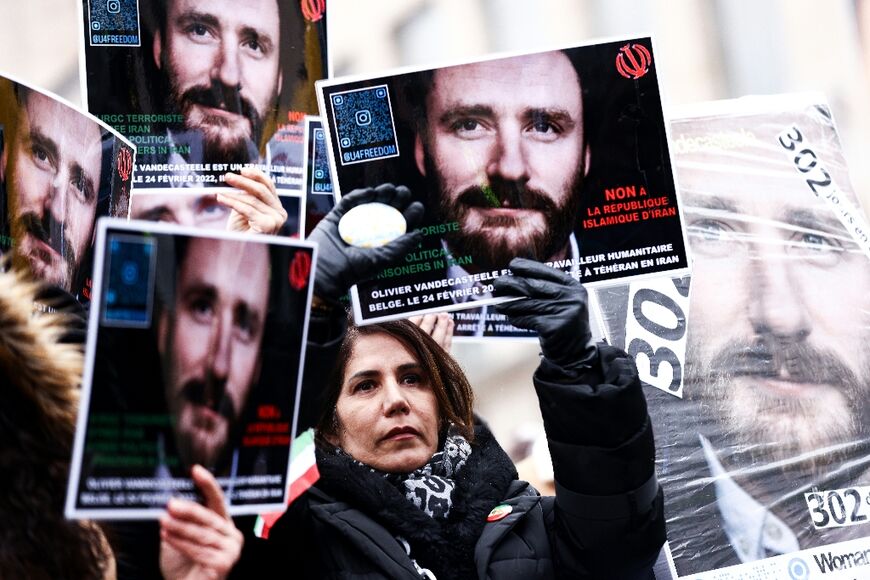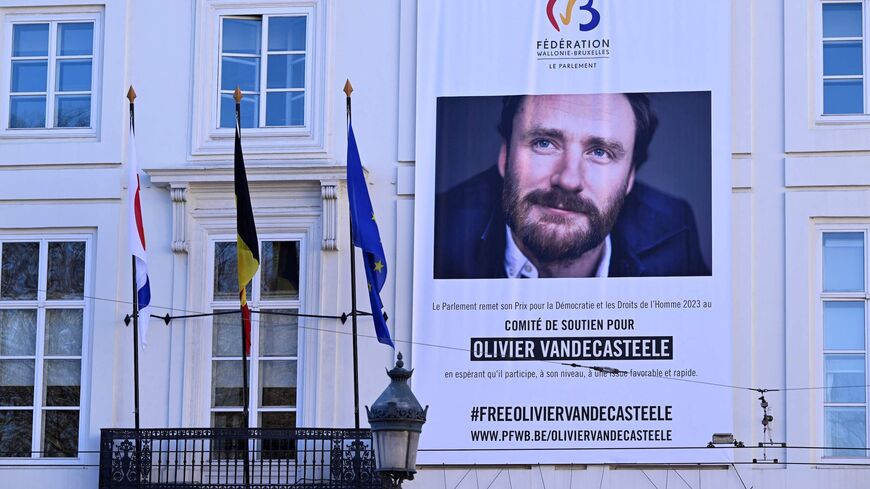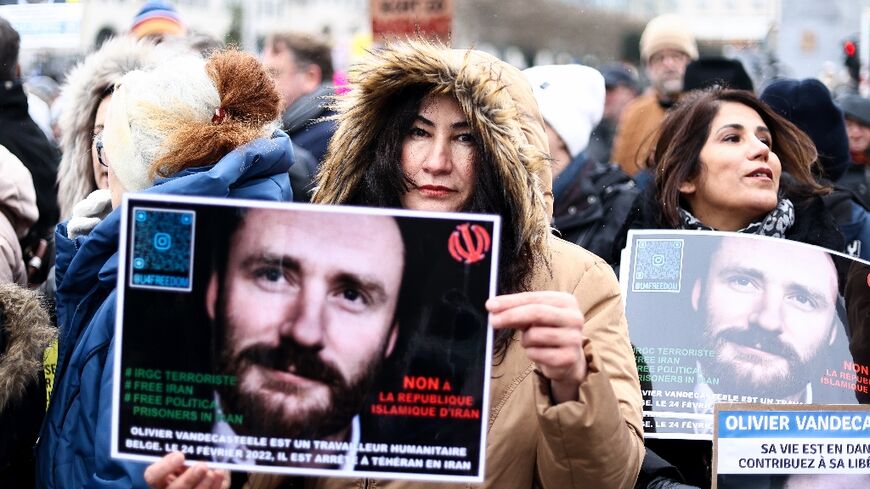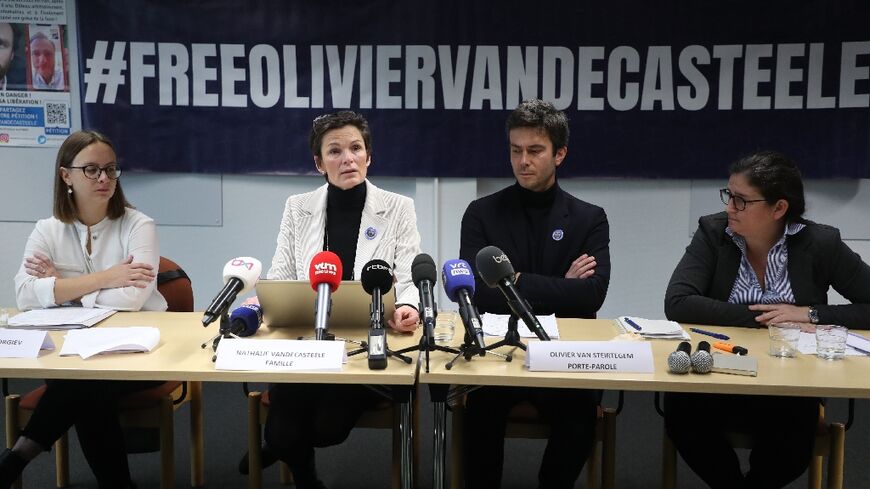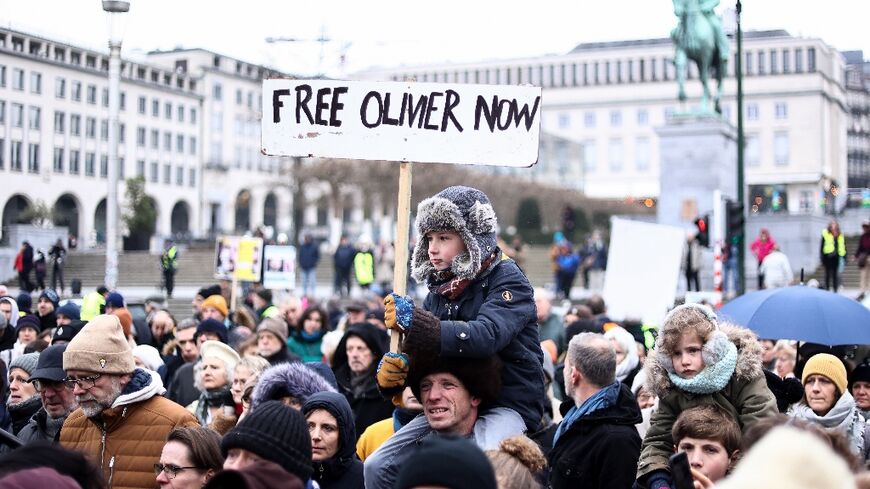Belgian aid worker held in Iran returns home
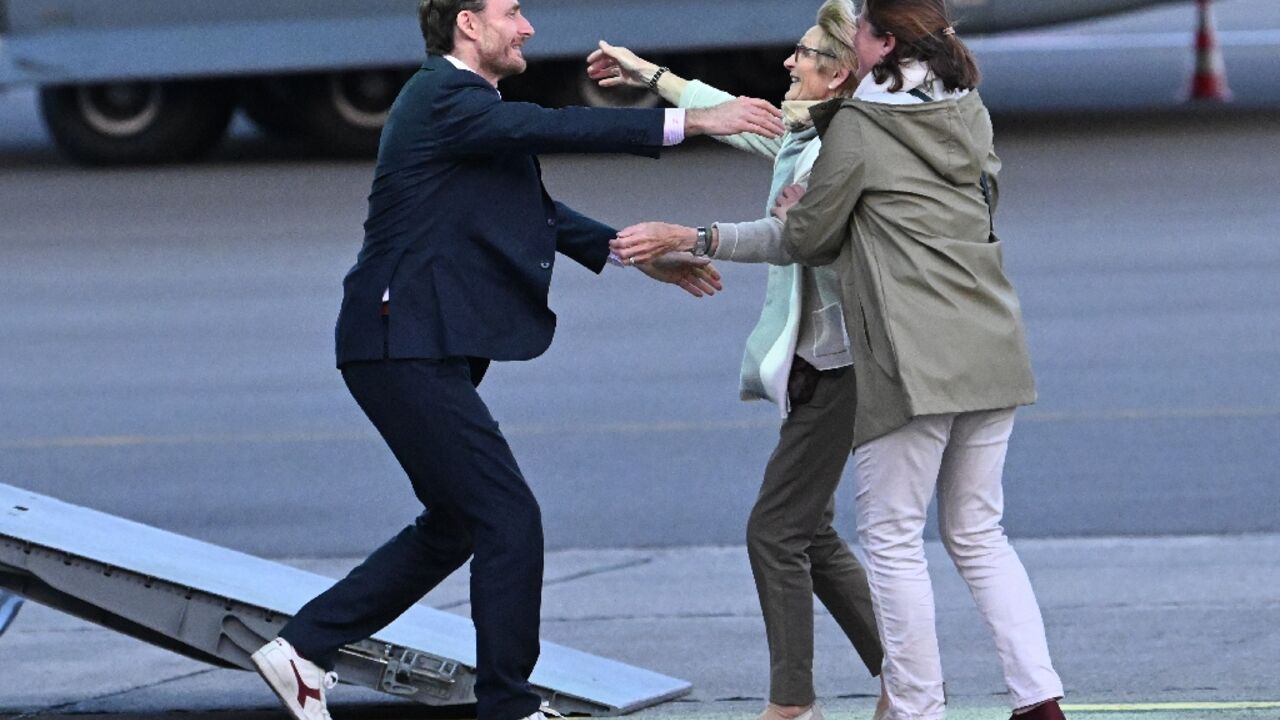
Belgian aid worker Olivier Vandecasteele, who was detained for almost 15 months in Iran, landed in Belgium late Friday, according to images broadcast on television, after being freed in a prisoner exchange.
The 42-year-old Belgian was greeted by his parents, sister and other family members on the tarmac of the Melsbroek military base near Brussels following his release on Friday.
The military plane bringing him back from Oman landed shortly after 9:30pm (1930 GMT), according to the images shown on RTL-TVI channel.
Earlier Friday, Iran freed Vandecasteele in a prisoner exchange for an Iranian diplomat convicted of terrorism.
Iran announced that the freed Iranian is diplomat Assadollah Assadi, who was jailed in Belgium over a 2018 plot to bomb an Iranian opposition rally outside Paris.
Iran's Foreign Minister Hossein Amir-Abdollahian tweeted that Assadi, "the innocent diplomat of our country... is now on his way back to his homeland and will soon enter our beloved Iran."
Both Belgium and Iran thanked Oman for its role in securing the release.
Belgium has always insisted that Vandecasteele was innocent and his trial rigged.
- 'We do not abandon anyone' -
He was sentenced in January to 40 years in prison and 74 lashes for "espionage", Tehran's judiciary said at the time.
"Olivier spent 455 days in prison in Tehran in unbearable conditions. Innocent," Belgium's Prime Minister Alexander De Croo said, following news of his release.
"For me, the choice has always been clear. Olivier's life has always come first. It's a responsibility that I take upon myself, that I accept. In Belgium, we do not abandon anyone," he added, without mentioning the prisoner swap.
Last year, Belgium and Iran signed a treaty to enable prisoner swaps.
Wearing a dark suit and trainers, visibly slimmed down but smiling, Vandecasteele emerged from the plane and was hugged at length by his waiting relatives.
He was not expected to make any immediate public statements.
- 'Unbearable conditions' -
Critics of the pact have alleged that the prisoner swap deal would only encourage Tehran to take Belgians hostage for use as bargaining chips to seek the return of agents like Assadi arrested for terror offences in the West.
An exiled Iranian opposition group, the National Council of Resistance in Iran (NCRI), which was the target of the 2018 bomb plot, challenged the treaty in Belgium's constitutional court.
The NCRI reacted furiously to Belgium's decision on Assadi and claimed it violated the court's order that the intended victims of the bomb plot should be consulted before any prisoner exchange took place under the treaty.
"The release of the terrorist... is a shameful ransom to terrorism and hostage-taking," the group said.
Amnesty International also said the return of Assadi would foster a climate of impunity.
But De Croo's government said that, to win Vandecasteele's release, they opted for another route: invoking a constitutional clause stipulating that the government, acting under the authority of the king, is in charge of international relations.
That meant that for "the Iranian opposition... we didn't warn them beforehand," one government official said.
Belgian officials denied that any ransom was paid.
- 'Threat' to Belgium -
Assadi was an Iranian diplomat based in Vienna, who was arrested after passing explosives to a Belgian-based Iranian couple who were supposed to travel to France to bomb an NCRI rally.
He was arrested in Germany as he tried to return to Austria and extradited to Belgium where he did not enjoy diplomatic immunity.
He was convicted of attempted "terrorist" murder and membership of a "terrorist group".
Tehran angrily protested, but his sentence was upheld in May 2021 when Assadi opted not to appeal.
Belgian officials said they had no choice but to hand over Assadi to get Vandecasteele released, saying that since the Iranian diplomat's arrest on July 1, 2018, Belgium and its interests abroad were confronted with "an increased threat" from Iran.
"Let there be no mistake about that: the arrest of our compatriot (in Iran) on February 24, 2022 is a direct result, a direct result of what the Belgian judiciary did to the alleged Iranian diplomat and nothing else," one official said.
Earlier this month, Iran released a Frenchman, Benjamin Briere, and a French-Irish citizen Bernard Phelan. But it continues to hold two dozen foreigners, whom Western capitals and families regard as hostages.
